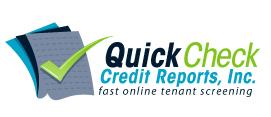 Require Photo ID:
Require Photo ID:When screening an applicant, ask for a copy of a picture ID or drivers license. Make sure the person in front of you is the same person on the application and credit report. - The LPA
The Fine Art of Landlord Protection. Landlord articles and tips to make being a residential landlord a little easier.
 Require Photo ID:
Require Photo ID: When a tenant wants to terminate a tenancy, it is done in one of two ways. Either:
When a tenant wants to terminate a tenancy, it is done in one of two ways. Either:
If your tenant wishes to vacate tenancy properly, it usually means giving you, the landlord written Notice to Vacate in a time-frame outlined by your lease agreement. Normally this allows the landlord enough time to prepare and find a new tenant for re-rental.
The usual steps a lease abiding tenant would take to terminate tenancy are: Click for the full article
We dissected a TransUnion credit report to show you one section at a time the components and what they mean.


click here for the full article ...

If you haven't already, please take the opportunity to quickly set up an account with The LPA's Quick Check Credit Reports! Quick Check is a simple, fast way to access online credit reports while saving you money!


 Most landlords enter into a rental relationship with a tenant with good intentions and positive expectations. Like a chef who assembles and cooks a gourmet dish, a landlord also must consider the elements of a rental transaction with a tenant and the rental property.
Most landlords enter into a rental relationship with a tenant with good intentions and positive expectations. Like a chef who assembles and cooks a gourmet dish, a landlord also must consider the elements of a rental transaction with a tenant and the rental property.
In order to find a good tenant, we need to first understand the qualities or ingredients that a good tenant is made up from. Once we understand what ingredients we are looking for, we can carefully screen applicants with the right ingredients in mind. The LPA has a few tools that can help you determine if your applicant has the desired qualities you are looking for in your screening process.
So What Are the Trouble Causing Recipes for a Landlord?
If you value your time and prefer to focus only on qualified prospects, you need to have a pre-screening system in place that will allow you to easily weed out the unqualified, while still attracting the better possible tenants.
Failing to make a thorough screening check can make you kick yourself later and usually will.
Often, when issues concerning tenant responsibility or expense arise, the tenant's first impulse is to call the landlord and ask that the landlord fix the problem. But it's covered in the lease, you say? Yes, but most tenants have convenient memory loss when it comes to their responsibilities according to the lease agreement. That is one of the reasons I created the LPA form, the Lease Obligation Reminder Notice which allows the landlord to enforce the terms of the lease by politely bringing the tenant's attention to certain items and covenants in the lease agreement that may have been overlooked or forgotten about. The notice is great as a preventative measure for many issues.
It is also important to be able to nip an issue in the bud and tell the complaining tenant straight out that "That issue is your responsibility. You'll find it in your lease under paragraph # 8. Thanks for being on top of things. Please let me know when you have it taken care of."
Good tenants are proud of being good tenants, and enjoy demonstrating it in their care for the property, so I very rarely have a problem with them.
|
About the author: More information on The Landlord Protection Agency is available at www.theLPA.com
As a Real Estate broker / investor in New York, John Nuzzolese has been involved with rentals and investment property since 1979. Besides owning and operating two real estate businesses, he is president and founder of The Landlord Protection Agency, Inc. , an organization specializing in helping landlords and property managers avoid the hurdles and pitfalls and expensive blunders common when dealing with tenants.